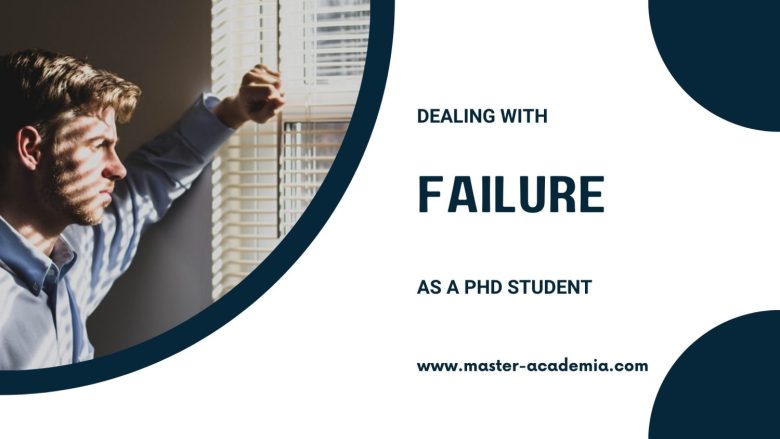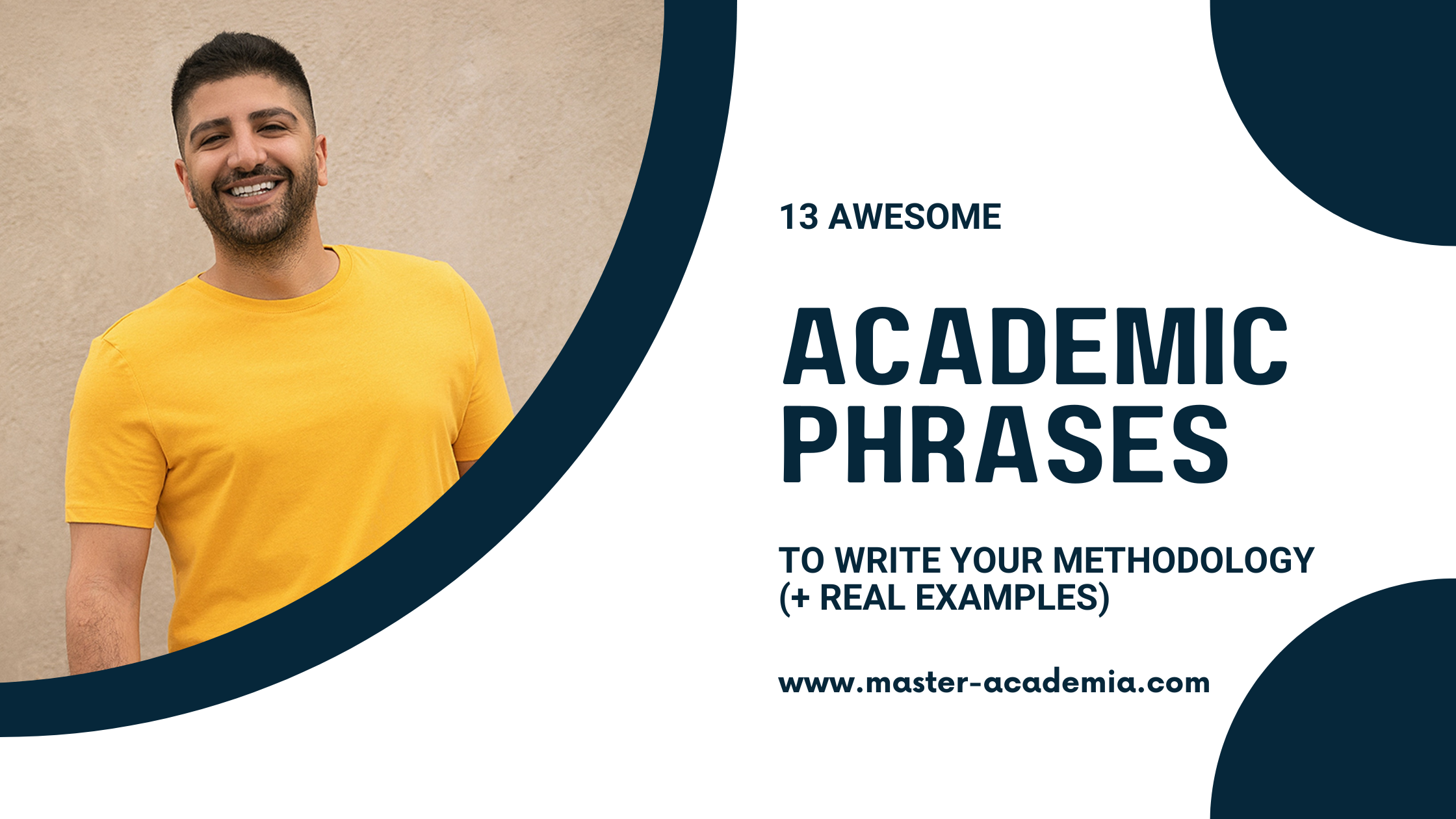
PhD students are extremely prone to experiencing failure. All academics are much more likely to experience failure (repeatedly) in contrast to other professions. But there are strategies to learn how to better deal with ‘academic failure’.
Contents
Dealing with failure in academia
Failure in academia is so omnipresent that there are even academic articles about ‘academic failure’. How can PhD students better deal with failure?
PhD students can deal with failure more constructively by realizing that failures are an inevitable part of academic work.
Additionally, the following strategies help to deal with failure and build lasting resilience:
- shifting one’s mindset by celebrating the courage to take risks
- honestly sharing (and hence normalising) experiences of failure
- taking the proper time to grief when something is not working out as planned
- Find a good mentor whose opinion you respect.
What counts as ‘academic failure’?
In 2018, Marissa S. Edwards and Neal M. Ashkanasy published an article in the Journal of Management & Organization with the title: Emotions and failure in academic life: Normalising the experience and building resilience.
In this article, the authors address failure as something that is not in line with desired or expected results. This definition draws attention to the emotions and individual experiences of failures. What constitutes a failure for one person, might not be considered a failure by another.
Experiencing failure as a PhD student is extremely tough. Think of a rejected manuscript, a failed grant proposal, or unsuccessful job applications. Over time, more senior academics often get used to these kinds of setbacks.
The highly subjective character of perceiving failure also provides hope. While rejections and negative feedback are never pleasant, we can learn to redefine what we see as a failure and build resilience.
#1. Understand that all academics encounter failure
According to Marissa S. Edwards and Neal M. Ashkanasy (2018), academics experience failure frequently because their work is regularly scrutinized. In addition, academic work is scrutinized from many different sources. Some examples:
Every manuscript submitted to a journal is scrutinized. While there is a proper way to provide feedback in a peer review, in reality, reviews can be extremely harsh.
Academics also regularly apply for grants and project funding. Competition for many grants and scholarships is extremely high. The acceptance rate of many grants lies below 5%!
Then there is teaching. Regular student evaluations are a reality for many academics. They are important sources for development, but can also lead to high-stress levels and anxiety among teaching staff. And students can be harsh too.
Understanding the nature of academic work means understanding that there is not a single academic who never experiences failure.
#2. Celebrate your courage to take risks
Celebrating successes is great. However, when it comes to long-term resilience building, it draws attention to the wrong outcome. Instead of (only) celebrating your successes, start celebrating your courage to take risks.
These risks can include (though are not limited to)
- submitting your work to a new journal after being rejected elsewhere,
- completing a grant application,
- writing a project proposal,
- applying to a new position,
- standing in front of a class teaching something difficult.
Emphasizing your courage to do these things will shift your mindset. When you accomplished one of these things, develop a habit: Make it a habit to treat yourself to your favourite meal. Or have a dinner party with friends. Or anything that makes you happy.
Not everything will work out. Heck, a lot will not work out. Failures are inevitable. But only when you dare to subject yourself to scrutiny over and over again, do you have the chance of succeeding. Therefore, trying should be celebrated.
#3. Openly share and discuss your failures
In 2016, Professor Johannes Haushofer from Princeton University went viral with what he called his “CV of failures”. Instead of listing his successes, he compiled an honest resumé that included everything he tried to achieve but failed to do so. It included job applications, research funding applications and paper rejections.
Understanding that even accomplished professors experienced numerous setbacks is comforting for PhD students. And for any other academic for that matter. It helps to normalize failure in academia.
As a PhD student, be open about your failures. Talking about them with your peers. Share how they make you feel. Share how you struggle. Being open yourself often means that others are more open with you too.
Knowing that you are not alone in this and that everyone fails once in a while, helps enormously. And similarly to celebrating your courage, celebrating your colleagues’ milestones. Praise ‘trying’ over ‘succeeding’.
#4. Give yourself time to grieve
So far so good. In theory. But if something unexpectedly goes wrong, or something does not work out as you hoped for, it still sucks. And it is okay to suck. Give yourself some proper time to experience frustration, sadness, anger or grief.
Chances are high that you heard about the five stages of grief: denial, anger, bargaining, depression, and acceptance. When it comes to academic failures, the hope is of course not to get stuck in one of these stages and move to acceptance as fast as possible.
At the same time, there is some truth to it. Just because you consciously know that failures are part of academic life, are normal and will ultimately help you to grow as an academic, you still need to take the proper time to allow for emotional processing.
#5. Find a good academic mentor
A good mentor is a person with whom you can have a good working relationship, but also be open about your feelings, concerns and worries. A mentor should be a person who not only coaches you in terms of research but in navigating academia as a whole.
Ideally, your PhD supervisor is your academic mentor. However, quite some PhD students don’t necessarily get along too well with their supervisor/s. If that is the case, try to find an academic mentor elsewhere. It can be someone more senior from your department, or a different university altogether.
If you experience failure, you should talk to your academic mentor. Explain how you feel. How crushed you are. If you respect the opinion of your mentor, you will also believe their honest assessment of the quality of your work.
After experiencing failure, such as a rejected manuscript, listening to your mentor can help enormously. And it can reinstate your confidence. Being way past my PhD times, I still call my mentor every time I get rejected. And I always feel better after talking about it.



